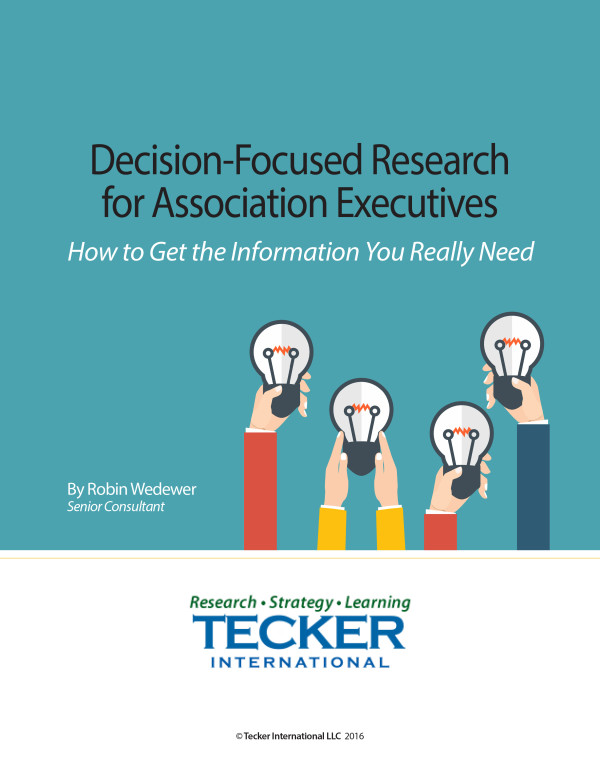Editor’s note: The consultants of Tecker International enjoy sharing their thoughts on critical discussions of the day. Occasionally we will post short commentary or response posts to articles or podcasts that we believe warrants further discussion. This is one of those posts. Please enjoy.
Association leaders make a lot of decisions. Wouldn’t it be great if they all knew the best process for making their decisions?
Knowledge-Based Decision-Making is a process designed for associations to make complex decisions in an informed fashion. The process itself is described in detail in the ASAE publication The Will to Govern Well (2010, ASAE) and it is also addressed in ASAE’s CEO Symposiums. But, in case you don’t have quick and easy access to either of those resources, here is a quick look at what you need to know about it!
Knowledge-Based Decision-Making has three key components:
- Dialogue Before Deliberation
- Knowledge-Based Decision-Making (makes sense, right?)
- Integrating Strategic Thinking and Governance
In Knowledge-Based Decision-Making, it is important that we address all concerns and questions. Everyone who participates and wants to be heard should have the opportunity to speak. This includes positive, negative, and minority opinions.
All those involved in the decision will have full access to all information.
With the invitation to participate in the process comes trust. Trust that the information will be used to prepare for meaningful consideration and dialogue.
Knowledge-Based Decision-Making includes four knowledge bases:
Examining these bases is essential when making an informed decision in a mission-driven organization.
- Question 1: What do we know about our stakeholders’ needs, wants, and preferences, that is relevant to this decision?*
- Question 2: What do we know about the current realities and evolving dynamics of our environment that is relevant to this decision?*
- Question 3: What do we know about the “capacity” and “strategic position” of our organization that is relevant to this decision?*
- Question 4: What are the ethical implications?
*And also…”What do we wish we knew but don’t?”
Neither “traditional debate” nor “appreciative inquiry” work well in associations.
Good conversations in voluntary organizations are characterized by sharing experience, expertise, and data in a well-intentioned dialogue.
Robust questioning in a culture of inquiry helps prevent typical flaws in decision-making. It leads to a consensus that respects the concerns of a minority view without abandoning the outcome desired for the organization.
[Thoughts from TI’s own Glenn Tecker in response to “Why a Good Argument is Good for Your Association” written by Mark Athitakis for Associations Now, published June 27, 2021.]


